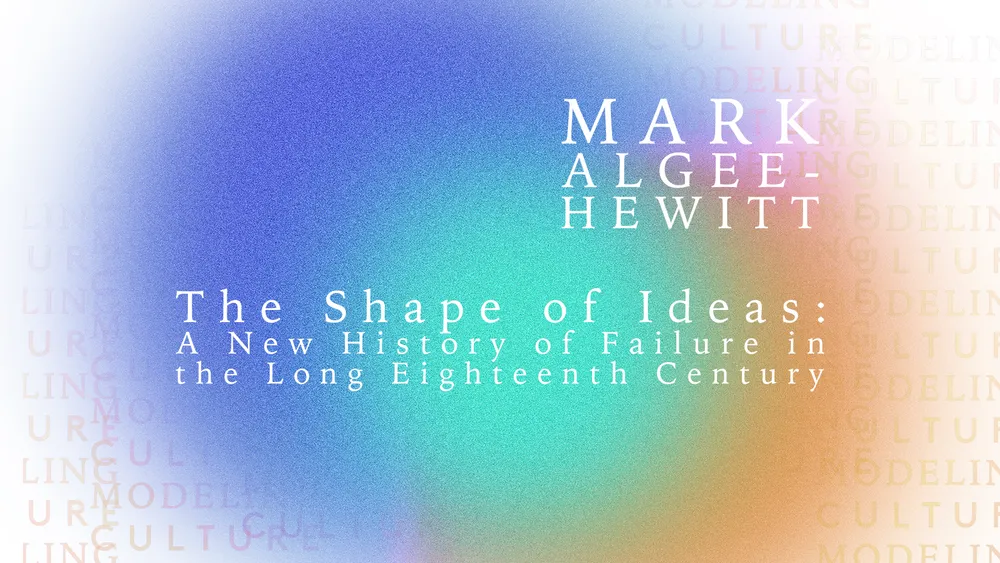The Shape of Ideas: A New History of Failure in the Long Eighteenth Century
–
Speakers

“In studying the history and evolution of ideas, we are biased by success,” states Mark Algee-Hewitt. "The concepts from the past that people are best able to investigate are those that have survived into the present day. Important as they are, these only tell a part of the story: failed and forgotten concepts can instruct us on why other ideas succeed."
In this talk, Algee-Hewitt will introduce a new method of studying the history of what Locke calls “complex compound concepts” in the eighteenth and nineteenth centuries. These multi-component ideas, such as “human rights” or “political economy,” can be traced, he argues, by measuring semantic distance over time. Using a new visualization method, his project identifies specific historical trajectories traced by successful concepts and, more importantly, by failed ideas. By identifying and interrogating the failures, Algee-Hewitt argues that we can better understand the successful ideas that continue to govern our world.
Mark Algee-Hewitt is an Associate Professor of Digital Humanities in the English Department at Stanford University. The director of both Stanford’s Center for Spatial and Textual Analysis (CESTA) and the Stanford Literary Lab, his work applies computational methodologies to the study of cultural and aesthetic objects, focusing particularly on patterns of language in large corpora of texts. Trained primarily in the analysis of eighteenth and nineteenth-century literature in English and German, as well as in computer science, his research has grown to investigate the covert patterns of language use in the contemporary media ecology that governs our world. Mark has published widely in humanities and literary studies journals, both as a solo author and as a collaborator on large scale projects. At the Literary Lab, he has led research into such diverse topics as the language that governs the experience of suspense for novel readers, the relationship between authors and writers in online fan fiction communities, the ability of climate fiction to teach real-world environmental facts to readers through fictional narratives, and the use of racialized language in American literature. His book The Afterlife of Aesthetics, forthcoming, explores the rise of aesthetic concepts, particularly the sublime, in the 18th century, identifying persistent patterns that govern its usage that remain even after the concepts have fallen out of fashion.